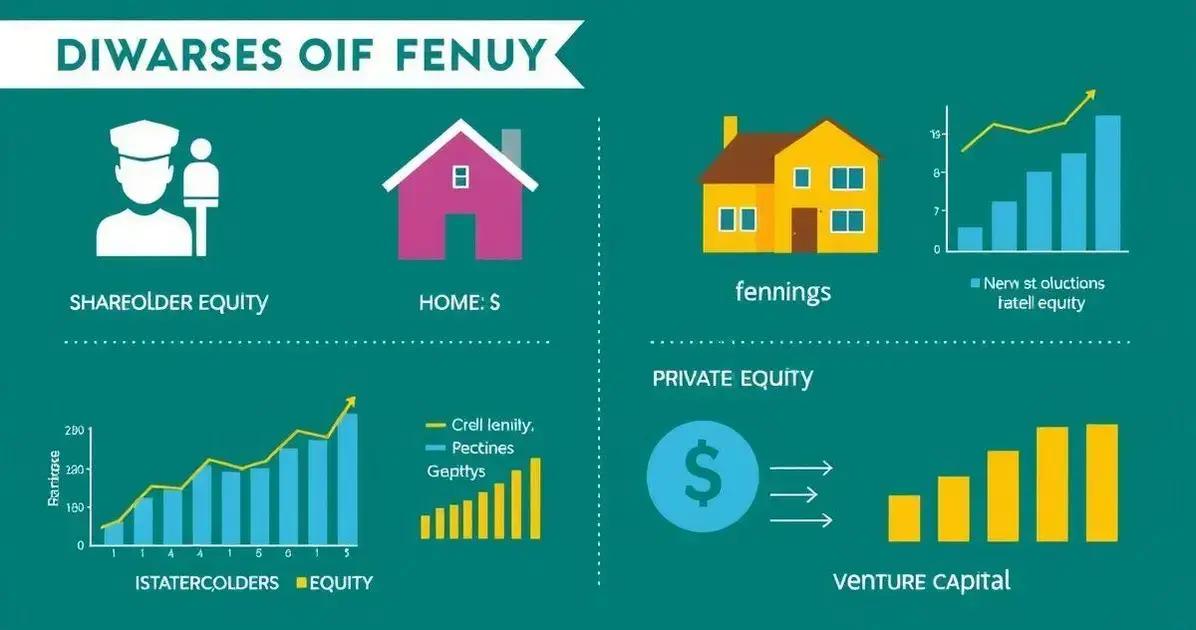Equity in the Modern Era: Unlocking Its Full Potential for Everyone
Advertising
Equity is essential for fostering social justice by ensuring fair treatment and equal opportunities for everyone, particularly marginalized groups. It involves recognizing individual needs and addressing systemic inequalities through targeted policies and community-driven initiatives.
Equity is a vital concept that impacts every facet of our society. It refers to fairness and justice, especially in resource distribution. Understanding equity can help us build a fairer world. In this post, we’ll explore the different types of equity and their significance in our lives.
Understanding Equity: Definitions and Importance
Equity is often defined as fairness and justice in the treatment of people, especially in terms of distribution of resources and opportunities. It goes beyond equality, highlighting that different individuals and groups may need varying levels of support to reach the same outcome. For instance, while equality applies the same standard to everyone, equity recognizes that different circumstances require different approaches.
The Importance of Understanding Equity
Understanding equity is crucial as it enhances our ability to create a more just society. By recognizing the unique challenges faced by various communities, we can work towards strategies that level the playing field. This comprehension is especially vital in contemporary issues like education, healthcare, and employment, where inequities persist.
Real-World Examples of Equity
Real-world examples of equity can be seen in programs aimed at assisting underrepresented groups. For instance, equity initiatives in schools often focus on providing additional resources and support to students from low-income families, ensuring they have access to the same quality of education as their peers.
The Role of Policy in Promoting Equity
Policies play a significant role in promoting equity. Governments and organizations must assess existing systems to identify biases that may disadvantage specific populations. This assessment can lead to reforms that not only acknowledge disparities but implement practical solutions to address them.
In summary, understanding equity involves recognizing the differences in people’s needs and actively working to eliminate barriers. It is an ongoing effort that requires collaboration among individuals, communities, and institutions.
Different Types of Equity in Finance

In finance, equity can refer to several important concepts that are foundational to understanding assets and ownership. Here are the key types of equity you should know.
1. Shareholder Equity
Shareholder equity represents the ownership interest of shareholders in a corporation. It is calculated by subtracting total liabilities from total assets. This number is important because it shows how much shareholders would get if the company were liquidated.
2. Home Equity
Home equity is the portion of a home that a homeowner owns outright. It is calculated by taking the current market value of the home and subtracting any remaining mortgage balance. Home equity can be a vital part of personal wealth and can be used for loans or refinancing.
3. Private Equity
Private equity refers to investment funds that are not listed on public exchanges. These funds typically invest directly in private companies or buy out public companies to delist them. Investors in private equity often seek to improve the financial performance of holdings and later sell them for profit.
4. Venture Capital
Venture capital is a subset of private equity that specifically focuses on startups and small businesses with high growth potential. Venture capitalists provide funds to these companies in exchange for equity, helping them grow and innovate at crucial stages of their development.
Each type of equity plays a distinct role in finance and investments, helping individuals and companies build wealth effectively.
The Role of Equity in Social Justice
The concept of equity plays a vital role in promoting social justice. It addresses the disparities in our society by ensuring fair treatment and equitable opportunities for all individuals, regardless of their background. Here are key aspects of how equity influences social justice.
Equity vs. Equality
While equality means treating everyone the same, equity recognizes that people come from different circumstances and may need various levels of support. Promoting equity helps ensure that all individuals can access the same opportunities, thus contributing to social justice.
Addressing Systemic Inequalities
Equity focuses on identifying and addressing systemic inequalities that affect marginalized communities. These inequalities can stem from race, gender, socioeconomic status, or health disparities. By implementing equity-focused policies, we can work to eliminate barriers that prevent certain groups from thriving.
Empowering Communities
Equity also seeks to empower communities. When individuals are given resources and support tailored to their needs, they can become active participants in societal change. This empowerment fosters a sense of ownership and responsibility, driving progress toward social justice.
Equity in Policy and Practice
For genuine social justice, policies must be underpinned by equity principles. This means creating programs and initiatives that specifically target disadvantaged populations. Whether in education, healthcare, or employment, policy changes that advocate for equity can lead to more significant, positive outcomes for society.
In summary, equity is not just a concept; it is a crucial framework for achieving social justice. By understanding and advocating for equity, we can contribute to a more fair and just society.
Future Trends in Equity and Inclusivity

The future of equity and inclusivity is poised for exciting developments, driven by social movements, technology advancements, and changing public attitudes. Here are some notable trends to watch.
1. Data-Driven Approaches
Utilizing data analytics is becoming crucial in understanding and addressing inequities. Organizations are using data to track progress and outcomes, ensuring decisions are informed and impactful. This approach helps in identifying gaps and designing targeted programs that promote inclusivity.
2. Emphasis on Diversity, Equity, and Inclusion (DEI)
The push for Diversity, Equity, and Inclusion (DEI) is gaining momentum across industries. Companies are implementing DEI frameworks, integrating inclusivity into their cultures, policies, and practices. This trend fosters workplaces that respect and celebrate different backgrounds.
3. Inclusive Technology
Technology is evolving to be more inclusive, making services accessible to diverse populations. Companies are designing products and platforms that consider various needs and abilities. This includes improving accessibility features, ensuring fair algorithms, and promoting user-friendly experiences for all.
4. Community-Led Initiatives
There is a growing move toward community-led initiatives that empower local voices. These initiatives focus on bringing community members together to address issues of equity directly. They foster a sense of ownership, helping to create solutions that are tailored to specific community needs.
As these trends continue to evolve, the focus on equity and inclusivity will be instrumental in shaping a more fair and just society.
In Conclusion: The Path Forward for Equity
The exploration of equity has revealed its critical role in establishing a fair and just society. By addressing disparities and fostering inclusivity, we can unlock the full potential of all individuals and communities.
Through understanding different types of equity, recognizing its importance in social justice, and anticipating future trends, we create avenues for meaningful change. Implementing data-driven approaches, DEI initiatives, inclusive technology, and community-led strategies will be vital in making equity a reality.
As we move forward, it is essential that both individuals and institutions commit to advocating for equity. Together, we can contribute to building a more equitable world where everyone has the opportunity to thrive.
FAQ – Frequently Asked Questions about Equity
What is the difference between equity and equality?
Equity focuses on providing individuals with the resources they need based on their unique circumstances, while equality treats everyone the same without considering their specific needs.
How does equity contribute to social justice?
Equity addresses disparities and promotes fair treatment, ensuring that marginalized groups have equal opportunities and resources to succeed.
What are some examples of equity in practice?
Examples include implementing targeted educational resources for low-income students, providing accessibility features in technology, and creating diverse hiring practices in workplaces.
Why is data important in promoting equity?
Data helps organizations understand existing inequalities and track progress over time, allowing for informed decisions that focus on areas needing attention.
What does DEI stand for, and why is it important?
DEI stands for Diversity, Equity, and Inclusion. It is vital because it fosters environments where all individuals feel valued and have equal opportunities to thrive.
How can communities promote equity?
Communities can promote equity by involving local voices in decision-making processes and implementing programs tailored to meet their specific needs.




